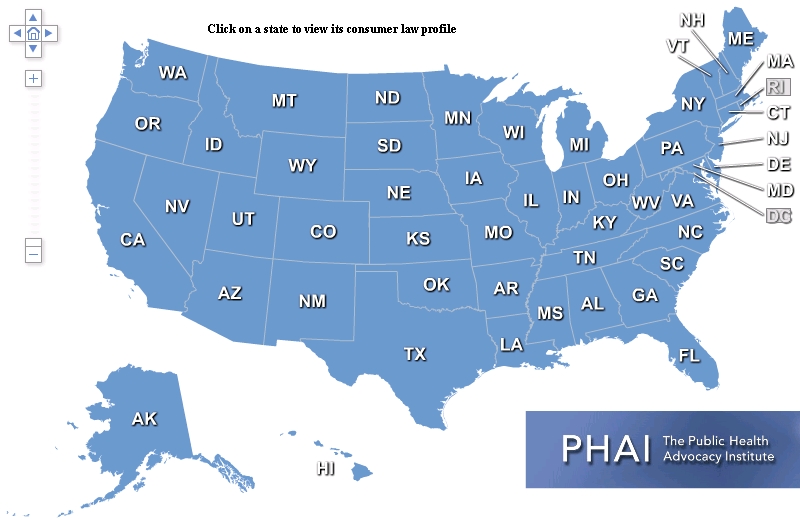Food and beverage marketing targeting children is a major focus of the food and beverage industry because, as the Institute of Medicine’s report on the subject bluntly declared, “marketing works.”
Deceptive and unfair marketing to promote high-calorie low-nutrient foods and beverages affect parent-consumer food purchasing decisions and induce demand among children for products that contribute to obesity and overweight. Such marketing campaigns can run afoul of an array of legal authorities that provide consumer protection from such practices.
PHAI conducted extensive 50-state research examining the provisions of state consumer protection laws of the United States that prohibit unfair, deceptive or unconscionable sales and marketing campaigns. Depending on the state, these consumer protection laws may be used by stakeholders in child health, including parents, as well as state attorneys general to stop unfair or deceptive marketing and advertising of unhealthy food and beverage products linked to overweight and obesity in children and adolescents.
The research focuses on the legal limits of (1) direct marketing to children and teens to get them to use their own spending money to purchase food products for themselves, and (2) “pester power” marketing that targets children to get them to persuade their parents into buying products for them. To make it easy to find and compare state consumer protection laws, we have created an interactive map linking to consumer protection law profiles of every state and the District of Columbia.
Key findings of our state consumer protection research also are summarized in a report and a legal issue brief:
- Major Findings from 50-State Survey of State Consumer Protection Law to Limit Junk Food Marketing to Children by Cara Wilking, JD and Mark Gottlieb, JD summarizes and contextualizes our research (pdf).
- Reining in Pester Power Food and Beverage Marketing by Cara Wilking, JD applies our research to food marketers who appeal to kids\’ ability to nag adults to purchase unhealthy foods (pdf).
A clear understanding of consumer protection rights and the sources of their legal authority will guide policymakers and advocates for children’s health who seek to curb these practices without the need for new legislation and regulatory measures.

This research was supported by the Robert Wood Johnson Foundation’s Healthy Eating Research Program (#66968).
